4 steps to data-based decision making for school improvement
Sue Holt has extensive experience in international education, holding various posts over 30 years including Deputy Head (Curriculum), Head of...

Login | Support | Contact us
Suzanne Crocker : Oct 26, 2021 1:12:30 PM
2 min read

As human beings we make thousands of decisions everyday based on the information (or data) entering via our senses into our brains.
Yet, as educators our blood might run cold when asked to gather data and make decisions on our learners, whether to help them choose appropriate subjects or predict grades.
So, what are the barriers to making such data-based decisions?
Firstly, what data should we choose, or should we use all of it? Schools have so much data on each year group, each subject, each teacher, each learner. Being clear on who should be looking at what and why is half the battle.
How do we know if the data is up-to-date, reliable, accurate? What happens if the different strands of data contradict each other? Importantly, how do we know that we can project into future and make predictions?
Also, we should use our formative and summative assessment data gathered over time from homework and classwork but bear in mind that such data can quickly go out of date.
Fundamentally, we are working with people who also make their own decisions and, let’s face it, often based on emotion and environment as opposed to thinking ahead to next week, next month, next year.
As we have all found out over the last 18 months or so, there are outside factors to consider over which none of us have any control.
When we say ‘data-based decision making’ do we actually mean ‘evidence-based’ practice that has its origins in medicine and is now firmly embedded in our education system.
What is the difference between data and evidence? A definition of data is ‘facts or information used usually to calculate, analyse or plan something’. Evidence is ‘the available body of facts or information indicating whether a belief or proposition is true or valid’.
So do we look at the data and make a decision, or do we create a belief and look at the information to see if it true?
One way to test the objectivity of your decision-making, is to collaborate with a colleague and to defend your decisions based on the data available. In medicine, you create a hypothesis and test it with the available data.
However, we have to be prepared to discard the hypothesis and create a new one if the data points that way.
Another key barrier to making reflective decisions is time. As classroom professionals, we barely have time for a drink, let alone time to gather data, verify the accuracy of the data and then look at the different strands and make a decision.
This is why it is so important to make sure our leaders give us time and also data in an easy to use, comparable format so that we can collaborate with our colleagues and make decisions.
Many schools are making greater use of data for accountability and school development than for teaching and learning as they are under pressure to improve performance. Establishing a healthy data culture can have a positive influence on teachers effectively using data in schools and data-based decision making can lead to improved student achievement and open the door to the next opportunity whether that's work or university.
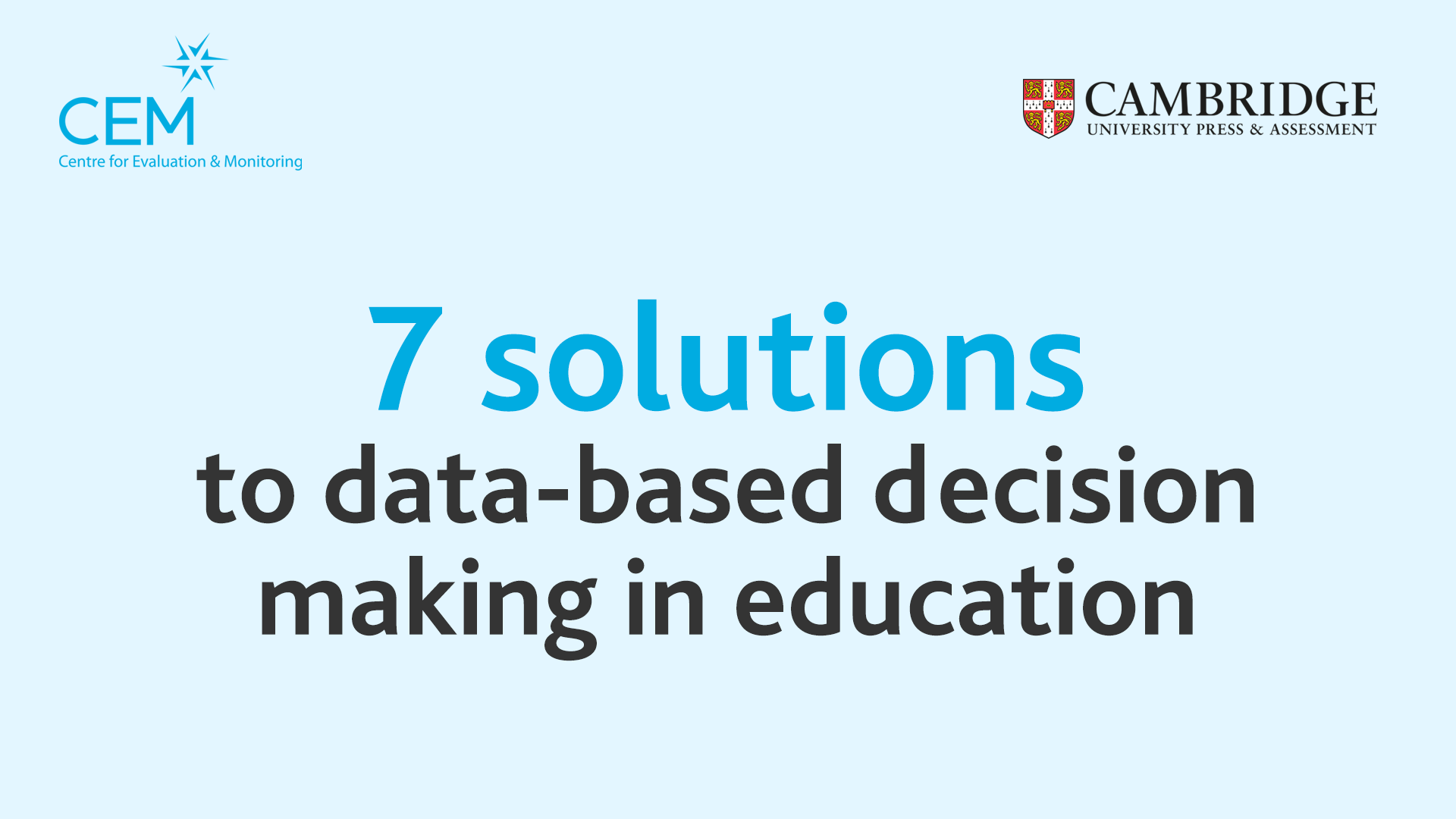
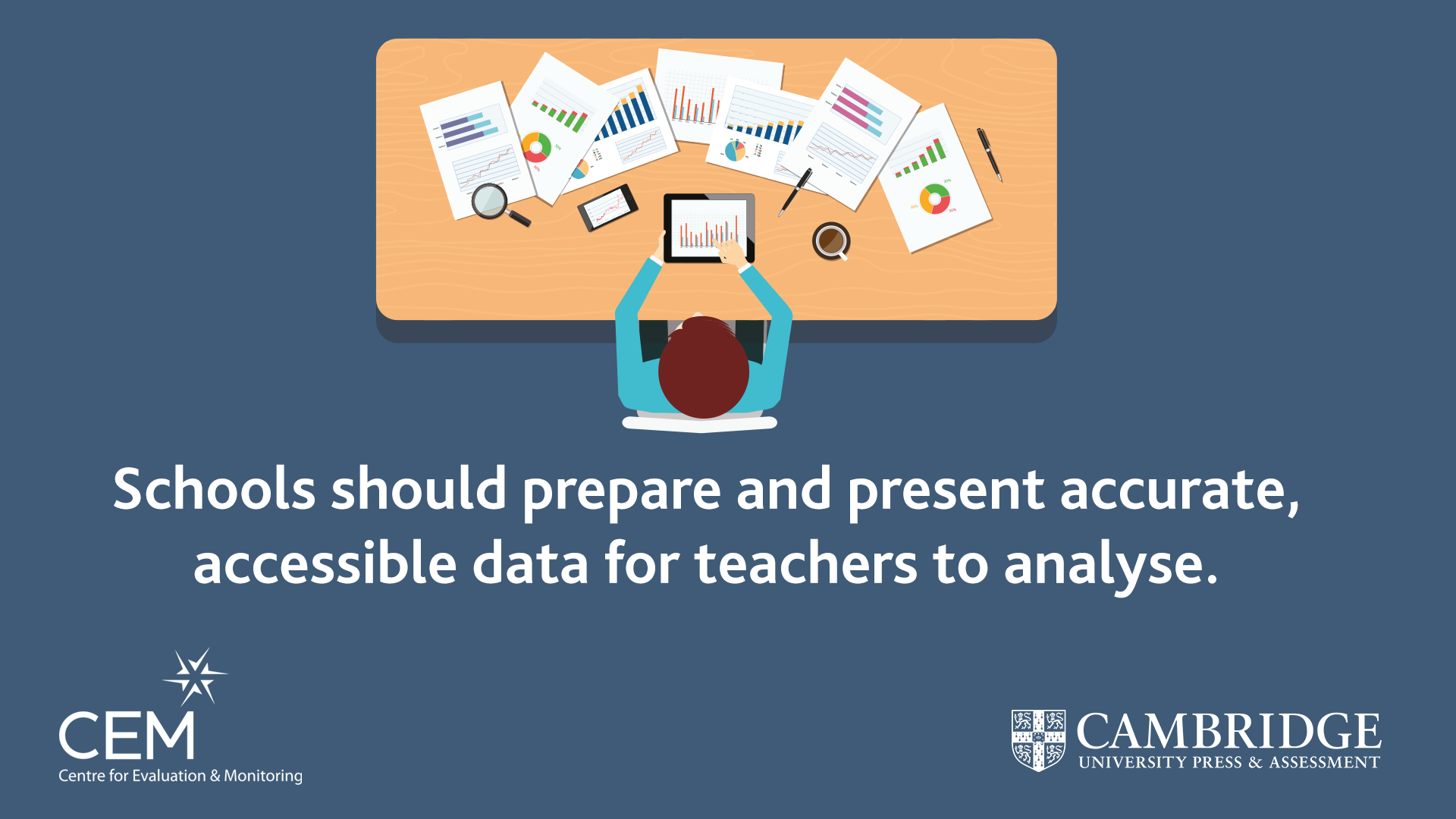
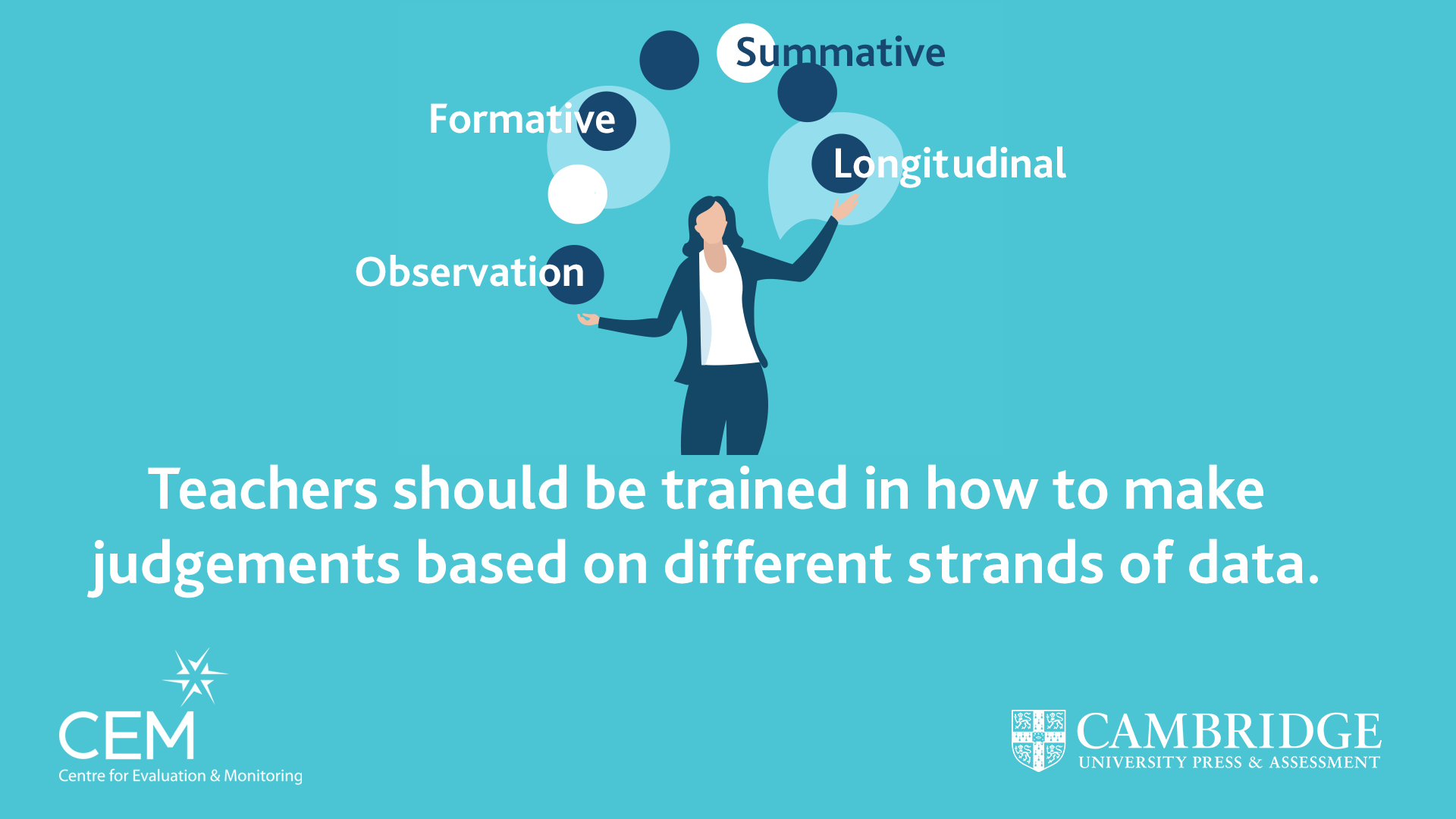
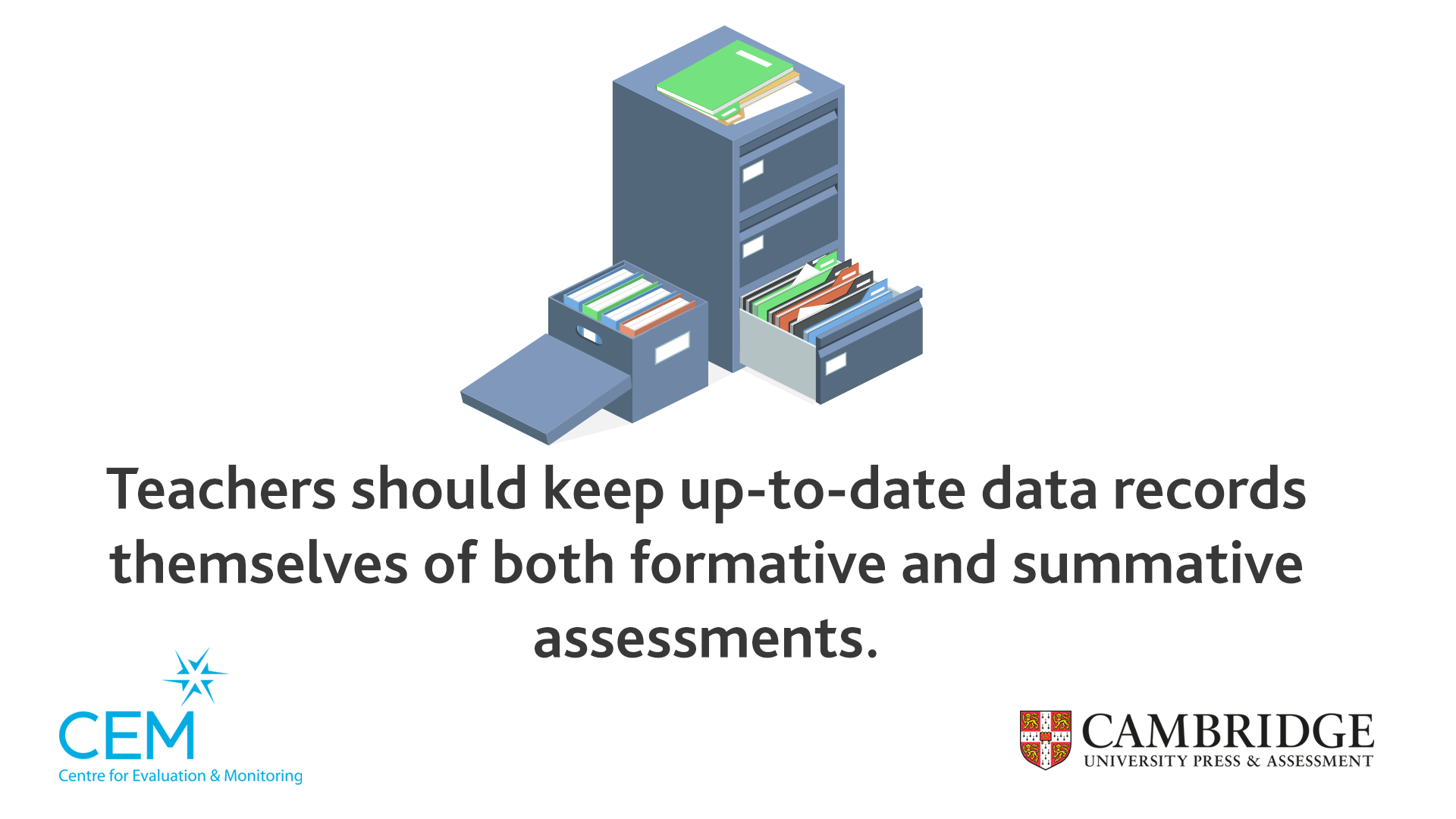
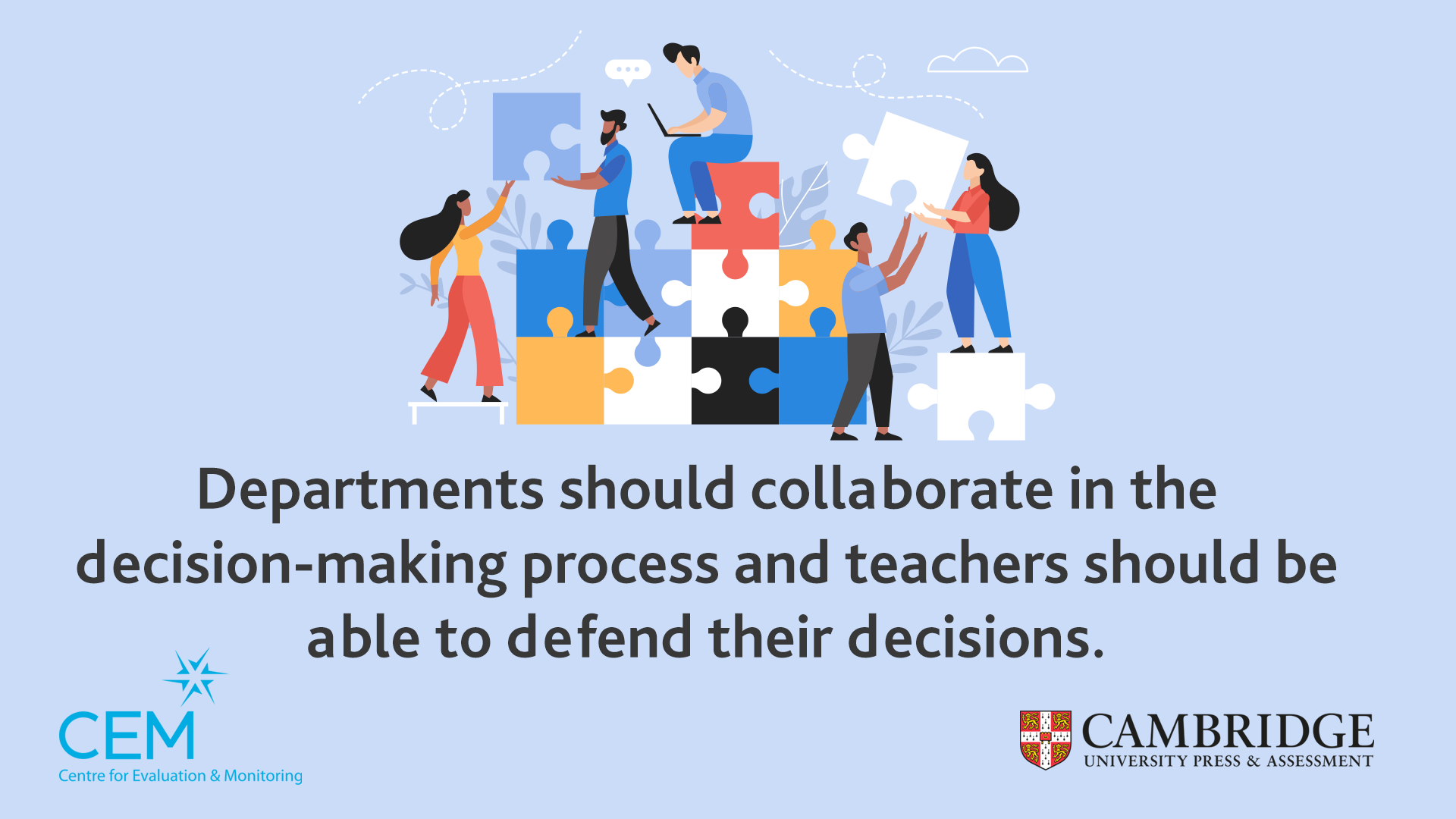
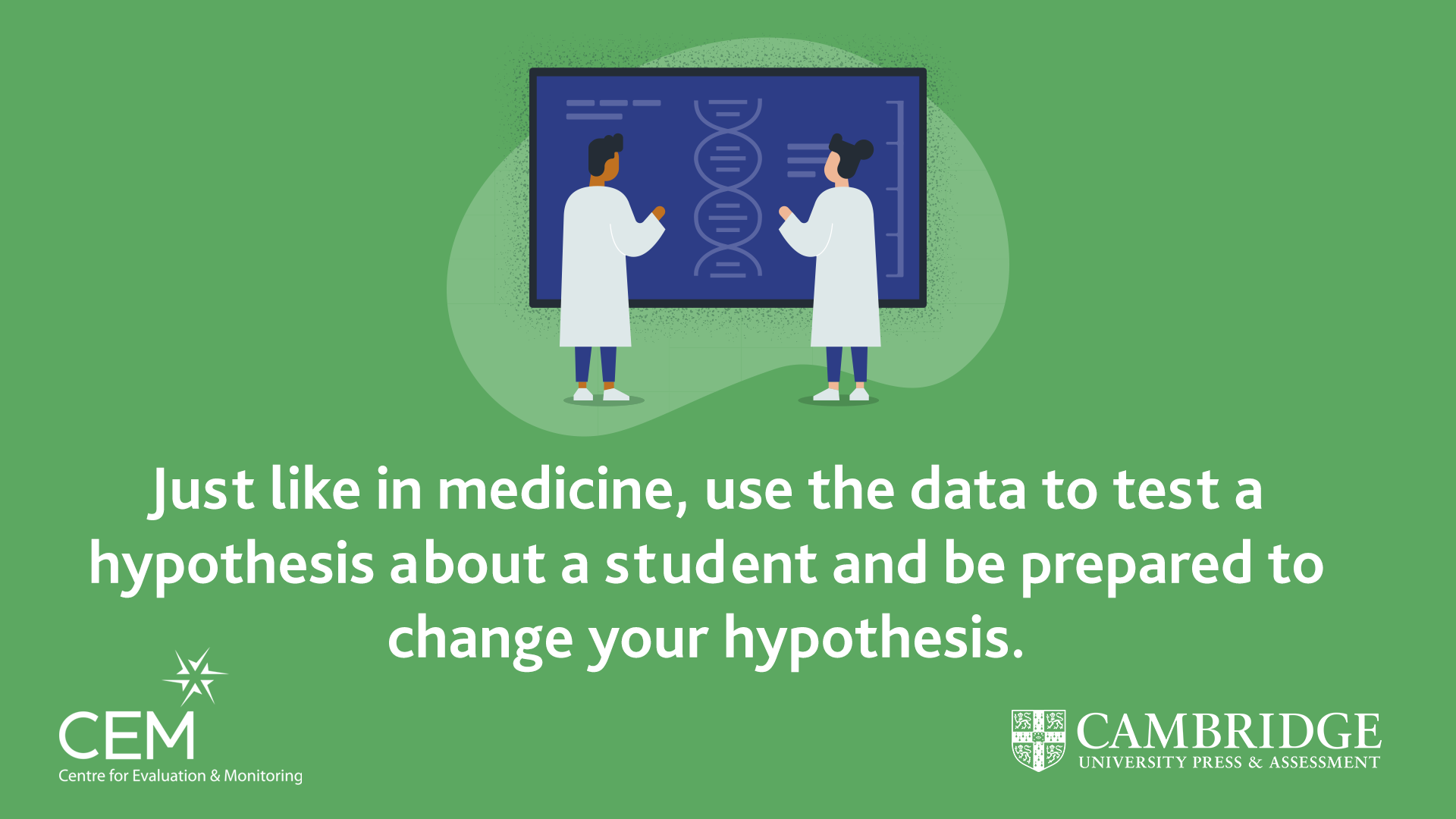
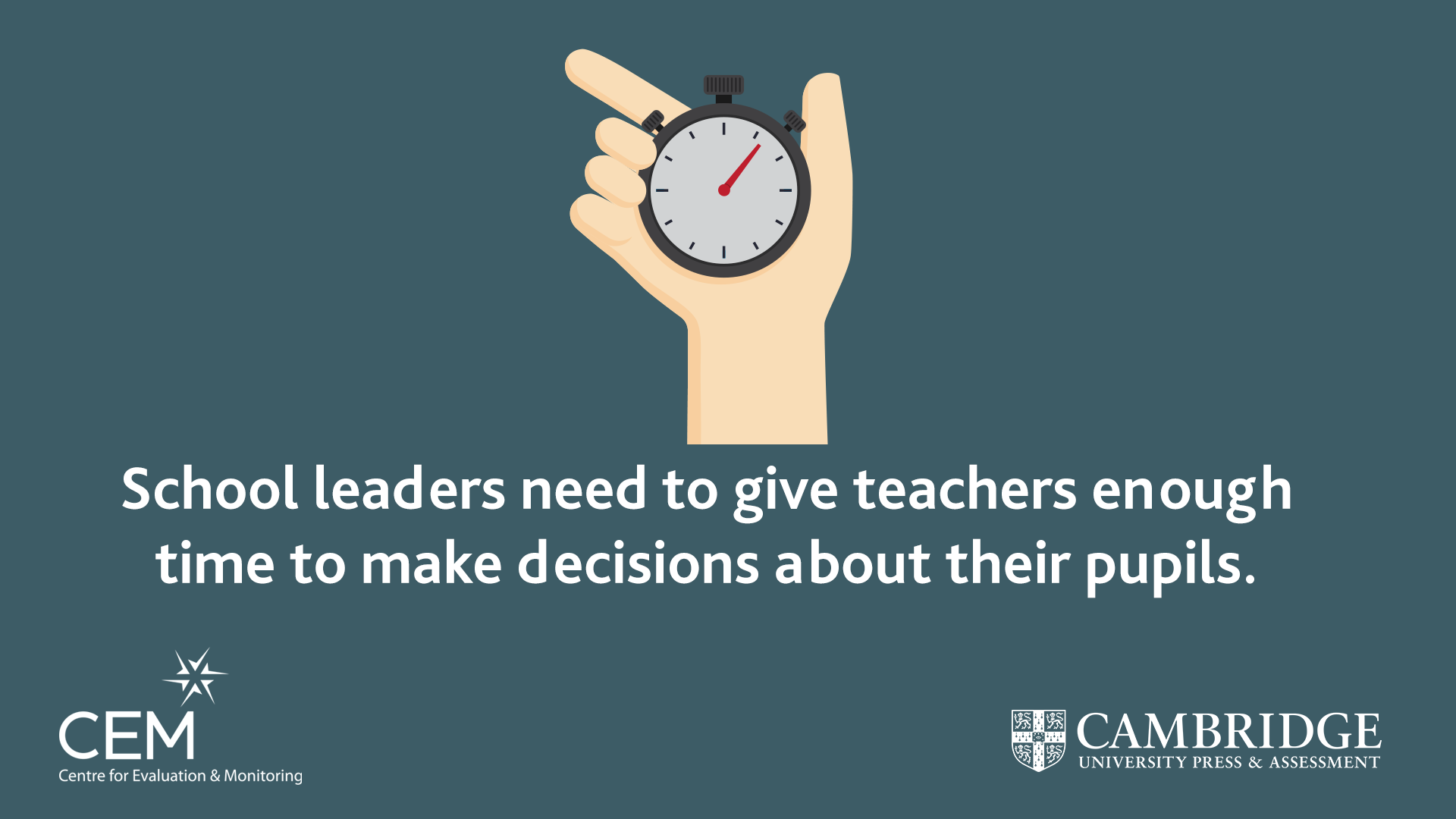
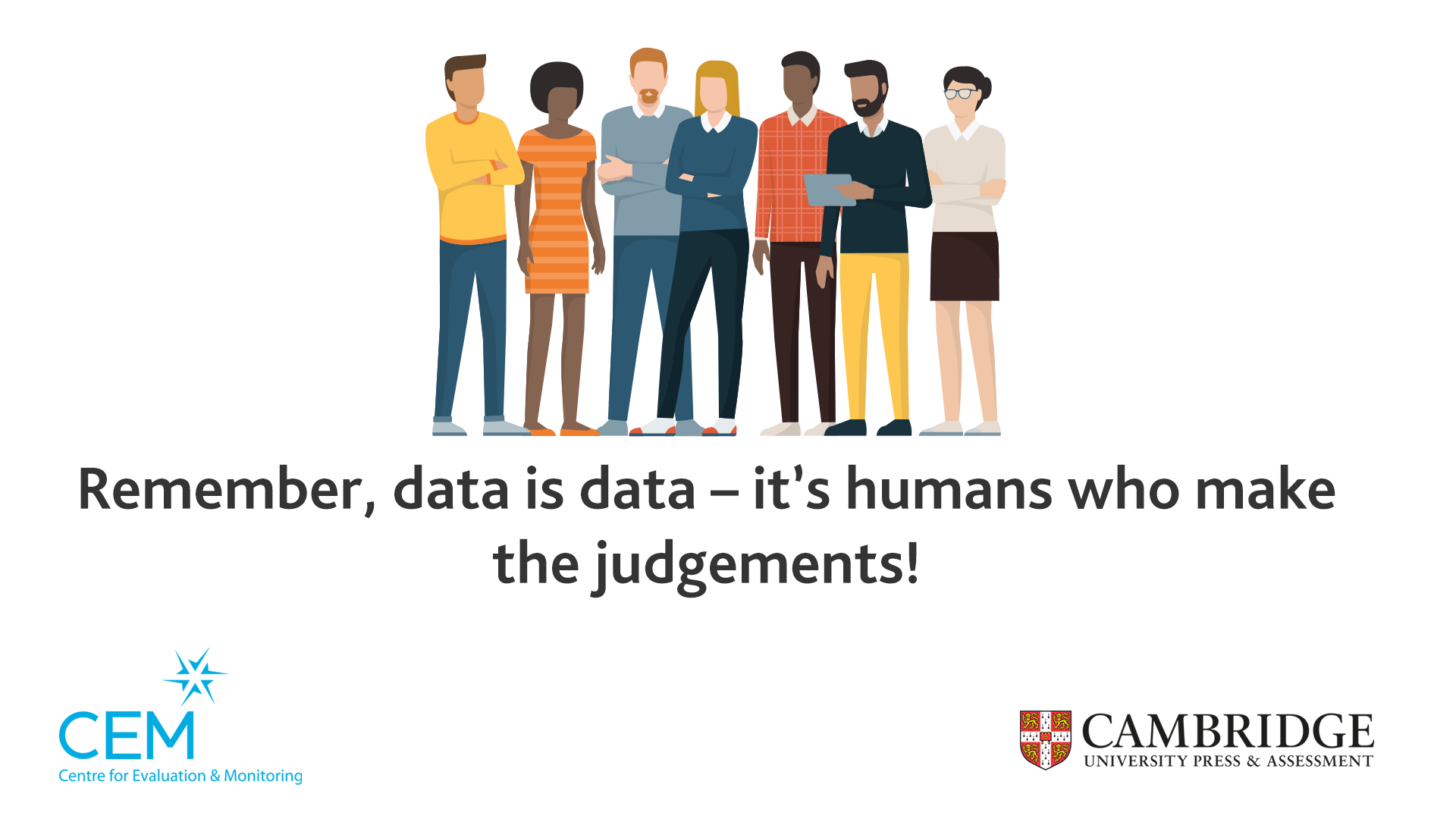
7 solutions to data-based decision making in education

Sue Holt has extensive experience in international education, holding various posts over 30 years including Deputy Head (Curriculum), Head of...

By Kate Bailey, Managing Director, Cambridge Insight The Queen’s speech after this year’s general election pledged to deliver fairer funding for...
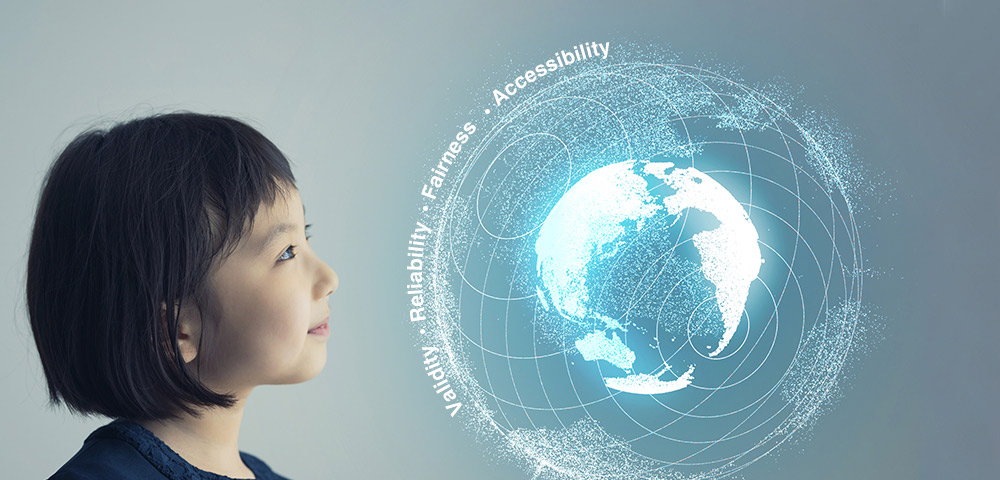
Each year CEM processes the results for hundreds of thousands of students participating in our assessments. The results from those assessments are...